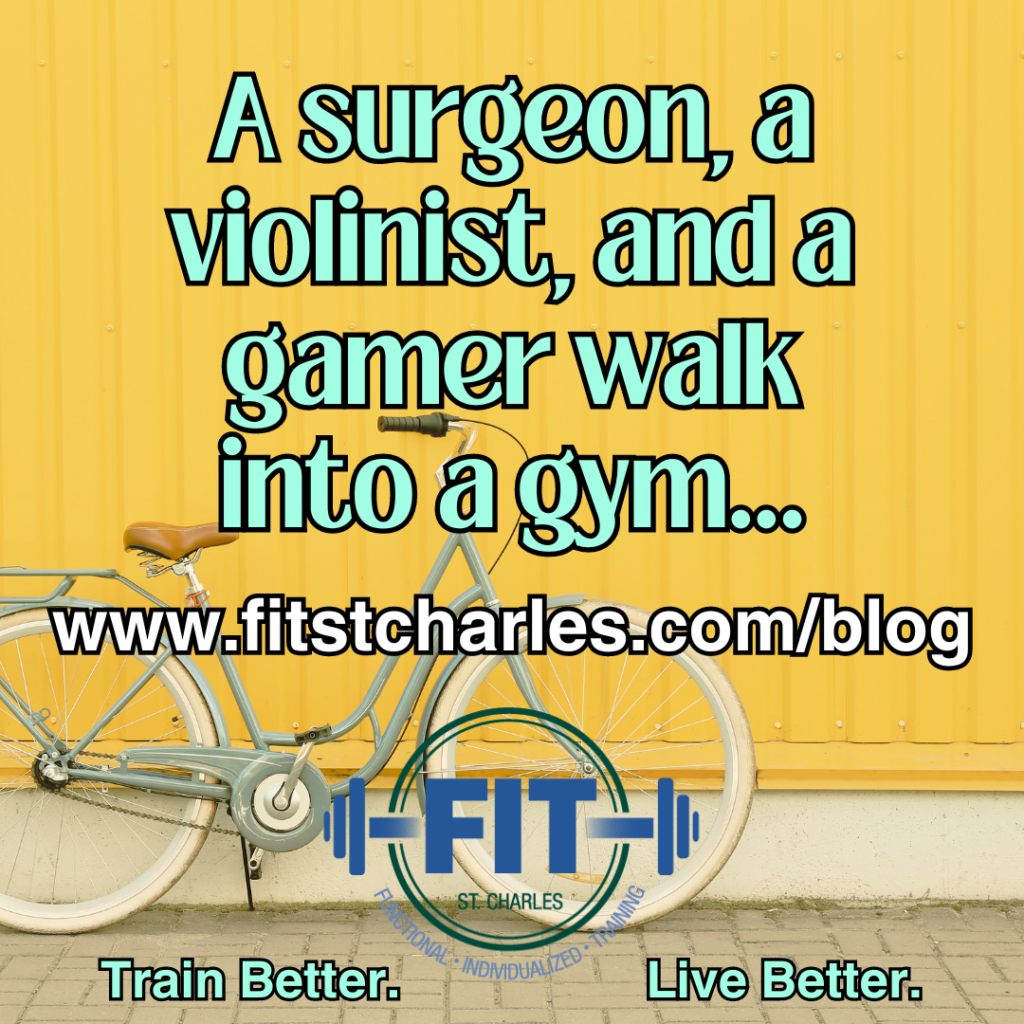
What do they have in common? What the heck does it have to do with exercise? Well, we know exercise helps us learn and improves our ability to recall information, but did you know it helps us with a different kind of memory, too? This year’s study by the University of Copenhagen’s Department of Nutrition, Exercise and Sports found that surgeons, violinists, and gamers improved their fine motor skills when exercising before or after practicing their craft. The type of memory involved in performing physical tasks is different than being able to recall facts or events. We generally sum up motor memory as “it’s like riding a bike”. Some people refer to this type of memory as muscle memory; as it turns out, exercise helps our body remember this, too!
Exercising before or after practicing a task improved motor memory by 10% in participants in the study done by the University. Exercise before AND after increased that percentage. In this study, the skills required for surgery, playing the violin, or gaming were studied, but the effect works with anything that requires motor skills. It doesn’t matter how old you are either- children, adolescents, adults, and seniors benefit from exercising before or after practicing a skill. They found the effects particularly impactful for individuals who are required to learn new types of tasks frequently, which is great news for all out there who like to dabble in a little of everything! If you want to learn to play the piano, go for a brisk walk, run, or hit the gym before or after (or both, just don’t overdo it)! There is something a little more impactful, however, that researchers are taking a little more time to study- what do these findings mean for people in rehabilitation?
These findings could mean a lot for people in rehabilitation for injury. Often, when a severe injury occurs, you lose mobility. Loss of mobility is frustrating and oftentimes hinders the ability to perform daily tasks. But researchers found some good news- adding exercise that elevates the heart rate makes your body “learn” how to be mobile again a little faster. That can mean a lot to individuals struggling to regain their lives. Jesper Lundbye-Jensen, one of the research team members for this study, explains, “Typically, rehabilitation is divided between two or three different disciplines. In practice, this may mean that Mr. Smith will have physical training with a physiotherapist on one day, work with an ergonomist the next, and train cognitive abilities with a psychologist on the third. Our research suggests that it could be wise to plan rehabilitation so that these areas are considered together, as doing so could have a synergistic effect.”
Why does it work? Well, your brain undergoes actual changes when you learn and remember new skills. It’s called brain plasticity and occurs both while practicing a new skill and hours afterward while that memory is consolidated. Specific parts of your brain are activated when you practice fine motor skills that are new to you. This part of your brain is less active when you use motor skills you already know well, such as riding a bike. Previous studies have shown that exercise releases several neurotransmitters that promote the development in the brain that new learning has initiated. The researchers believe that this is the relationship that produces the beneficial effects.
The next time you need to practice something that requires fine motor skills, why not exercise before or after, or both?
